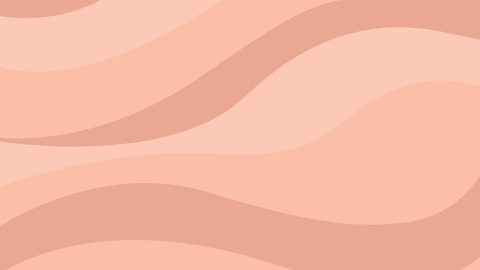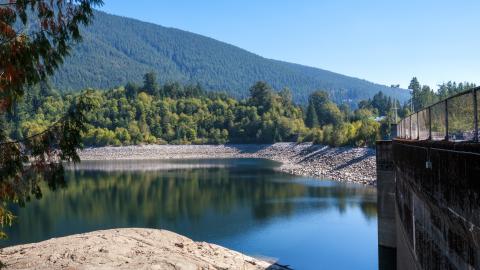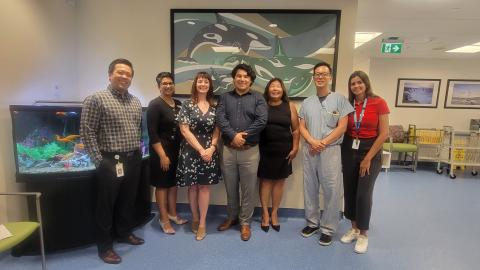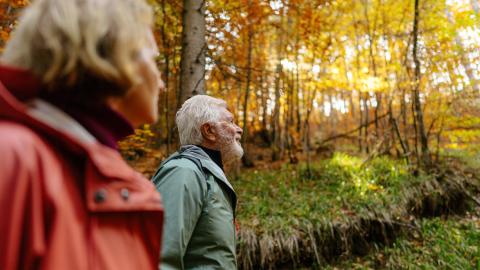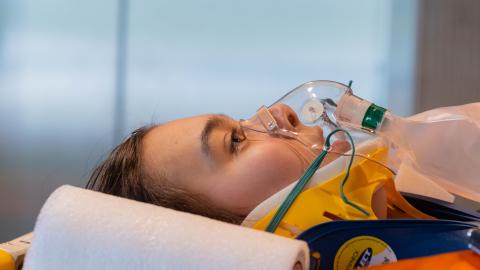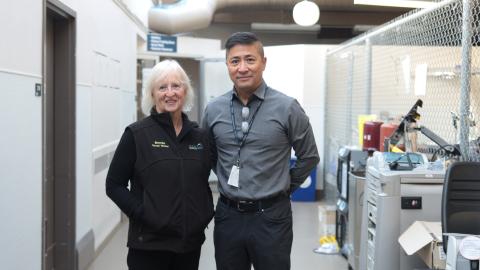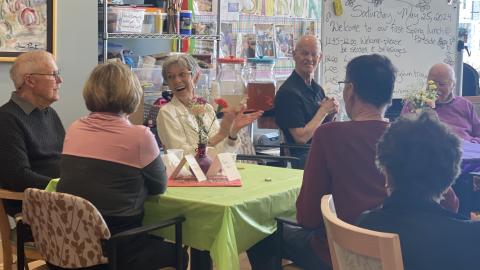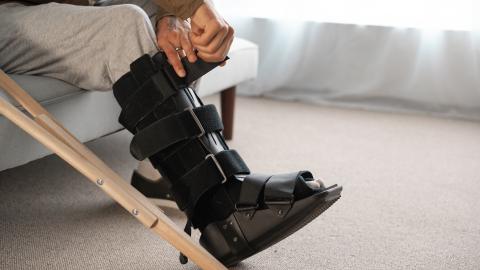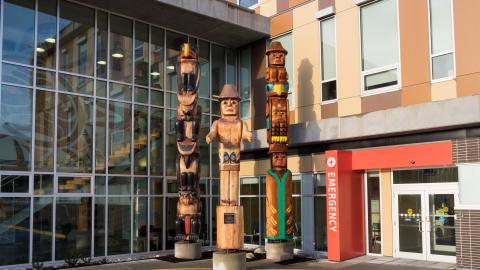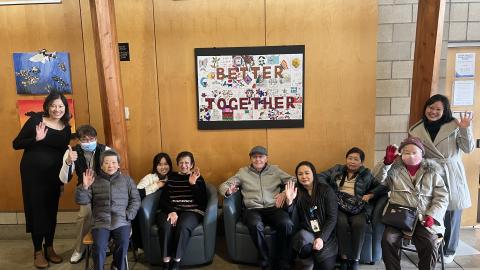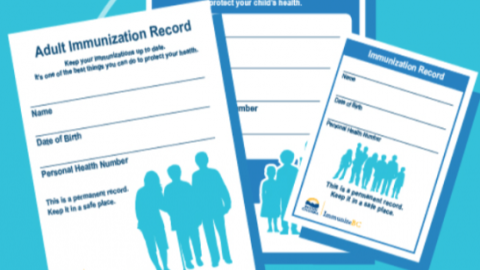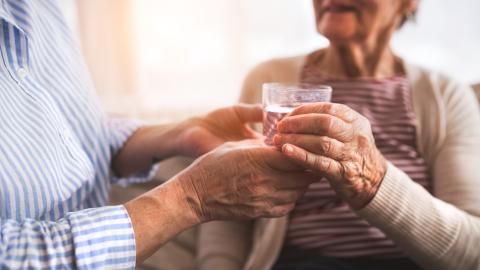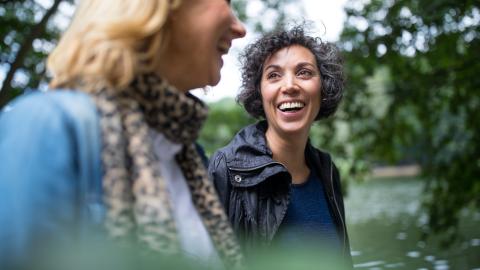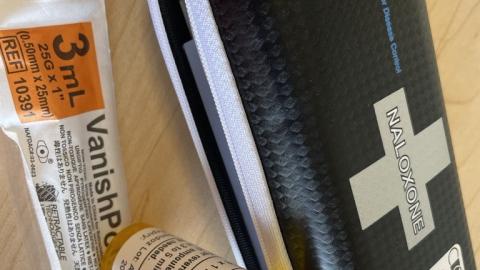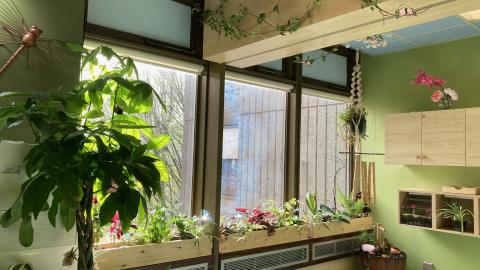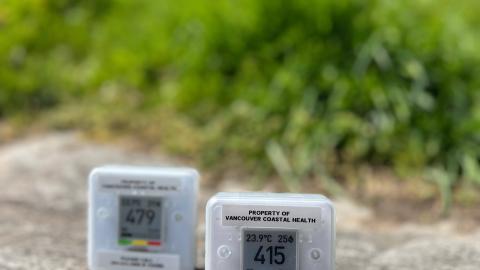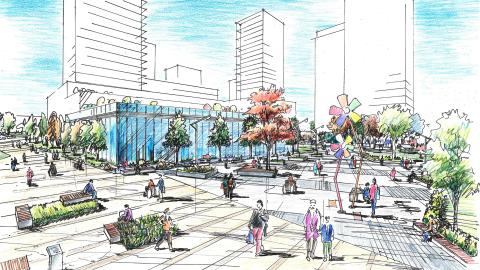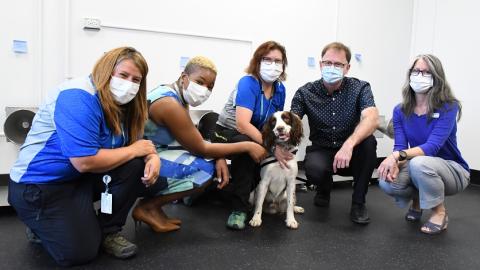Resource
Downtown Eastside 2nd Generation Strategy
After five years of intensive consultation, planning and implementation, the work VCH set out to accomplish through the DTES Second Generation Strategy is substantially completed. A new model of care for clients that include integrated care teams was implemented across the DTES on January 23, 2018.
The new model of care will give residents of the DTES better access to coordinated, consistent health care. The new model was launched with the opening of Heatley Community Health Centre, one of three sites in the DTES to transition to the new model of care. The other two Community Health Centres are Pender and Downtown Community Health Centres.
The new model brings together existing programs and services so clients get the care they need at one location. Primary care, mental health and substance use services, harm reduction and specialized care are all available at one site.
New model of care and Integrated Care Teams
Six Integrated Care Teams (two at each site) support the new structure and provide clinic and outreach services at Heatley, Pender and Downtown Community Health Centres. Each client will also have one care coordinator responsible for their care. Integrated Care Teams include social workers, counsellors, peers, community liaison workers, physicians, nurse practitioners, nurses and health care workers. They are also supported by specialized services such as wound care clinicians, psychiatrists, palliative care nurses, and occupational therapists.
Elders in Residence: All three Community Health Centres will have Indigenous Elders as part of the integrated care team. Heatley CHC also has a designated sacred space to treat clients who are in spiritual distress, and the room has the necessary venting to allow for smudging ceremonies.
Highlights of the new model of care include:
-
Expanded hours means 33 per cent more hours per week of available care and an opportunity to expand care to approximately 3,000 more clients in need
-
24/7 care is available to clients (access to services 12 hours a day onsite with after-hours, on-call support available if needed)
-
One single care coordinator and comprehensive plan for the client
-
42 per cent smaller teams for closer relationships and opportunities for greater teamwork
-
Three times more teams doing follow-up outreach visits with clients and accompaniments of clients to appointments, etc., as standard practice
-
Ten times more staff trained in trauma informed practice and cultural competency
-
50 per cent more clinic time for women-only care will reduce potential trauma and increase access to care for women
-
90 per cent more teams with peer roles
Initiatives we implemented include:
-
Integration of VCH Health Services in the DTES – At the core of the DTES 2nd Generation Strategy was the idea that we wanted to implement client-centred services that would be easier to navigate and provide more access where and when clients needed it.
-
DTES Mental Health & Substance Use Drop-in – Powell Street Getaway – In partnership with Lookout Housing and Health Society, we successfully opened and transitioned clients to the new Drop-In (fall 2016) as well as opened Supervised Consumption Services onsite (July 2017)
-
DTES Connections- Our low barrier, on-demand addictions treatment site officially opened in March 2017
-
Embedding Peers/People with Lived Experience in our integrated care teams
-
Core Competencies – All DTES staff received training for the following core competencies: cultural safety, trauma-informed practice, harm reduction and recovery-oriented practice
-
Food Services – VCH Vancouver staff and DTES community stakeholders are developing a food quality standards document that will be used for all food services provided at VCH operated services in the DTES.
-
Intensive Case Management Teams- One team for all DTES residents, one team focussed on serving marginalized women (Feb 2017), with a new youth ICMT in the works for later this year.
-
Improving Supports for Women in the DTES – Including a VCH DTES Women’s Health and Safety Strategy continuing to be developed; the women’s only ICMT; 38 addiction recovery beds with Atira (Jan 2017); a women’s only OPS, SisterSpace, also with Atira; and plans for a mobile health van to be used by the women’s ICMT.
-
Improving Supports for Indigenous People in the DTES – This includes the implementation of an Elders in Residence program at each site; implementing Indigenous design concepts into renovation/new build plans; New Indigenous-specific Naloxone distribution sites and training; and Indigenous Cultural Safety Training now a Core Competency in the DTES for all VCH staff and Peers
-
Shelter Pilot – Initiated in July 2015 in partnership with RainCity Housing and Lookout Society
-
In The Works: Two Purpose-Built Developments at 58 West Hastings and 301 East Hastings
Meet Emma
The best way to explain what the new model of care means for clients in the DTES is to introduce you to Emma's story and let you see for yourself how this will benefit DTES residents.
Guiding documents
VCH has created a number of guiding documents to help us and our community partners better serve people facing marginalization. Built through multistakeholder groups involving peers, clinicians, community members, and VCH staff, these documents were developed to support the DTES Second Generation Strategy, but have applicability beyond the DTES to any service, from conception to planning to contracts and operations, that seeks to support vulnerable people
Documents
-
-
DTES Women's Health and Safety Strategy
-
DTES Women's Health and Safety Strategy Plan
-
DTES Peer Framework
-
DTES Washroom Design and Use Recommendations
-
DTES Food Framework
-
VCH Food Standards
-
VCH Food Standards 1-pager
-
VCH Peer Advisor Readiness Tool
-
DTES Second Generation Strategy
DTES Second Generation Health System Strategy Design Paper identifies several opportunities to improve services on the DTES
-
DTES Women's Companion paper
provides both the context and strategic direction of the changes we want to make in how VCH delivers and funds services to women in the DTES.
-
What informed the strategy?
-
-
Discussion paper 1
Working with health agencies and partners (October 2012)
-
Discussion paper 2
Staff perspectives on improving care and working with health partners and agencies (May 2013)
-
Discussion paper 3
Client perspectives on improving healthcare in the DTES (January 2014)
-
-
-
Health System Strategy Overview
(July 2013)
-
A Second Generation Health System Strategy
(July 2013)
-
Appendix
(July 2013)
-
Evaluation
An extensive evaluation is part of the 2nd Generation Strategy. Please contact: 1-866-884-0888 for more information.




